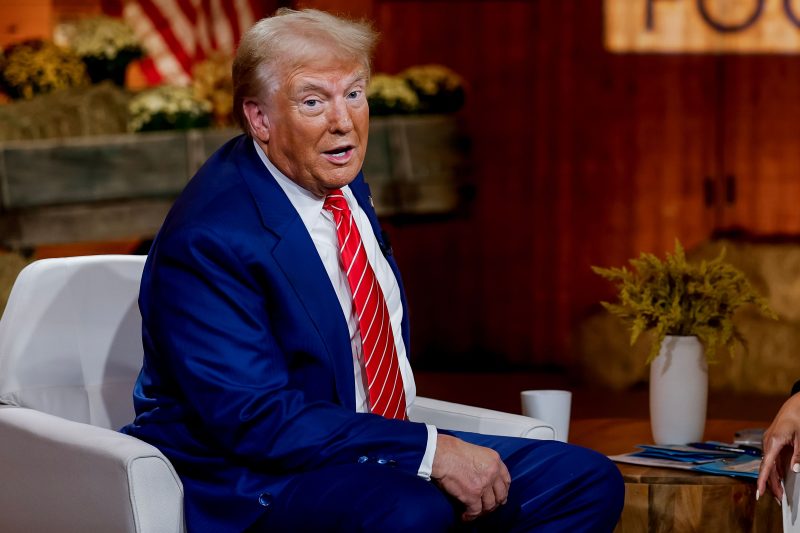In a recent town hall event focused on women’s issues, former President Donald Trump made a surprising claim that he is the father of IVF. During the event, Trump addressed the audience with his usual confident demeanor, asserting his role in advancing in vitro fertilization (IVF) technology.
Trump’s statement drew mixed reactions from the public and experts in the field of reproductive medicine. While some supporters applauded his perceived contribution to reproductive science, others questioned the accuracy and significance of his claim. In vitro fertilization has a complex history that involves numerous scientists and researchers who have made groundbreaking advancements in the field.
The development of IVF can be traced back to the late 19th century when scientists began exploring the concept of fertilizing eggs outside the human body. In the mid-20th century, researchers like Robert Edwards and Patrick Steptoe made significant strides in developing the technology that would eventually lead to the first successful birth through IVF in 1978.
Trump’s assertion that he is the father of IVF overlooks the pioneering work of these scientists and the countless others who have dedicated their careers to advancing reproductive medicine. The field of IVF is a result of collaborative efforts from scientists, clinicians, and patients who have collectively contributed to its development.
While it is possible that Trump may have supported initiatives related to fertility treatments during his presidency, it is essential to acknowledge the broader context in which IVF technology has evolved. The impact of IVF extends far beyond any single individual or administration, representing a culmination of scientific research, technological advancements, and ethical considerations.
As discussions around reproductive rights and healthcare continue to unfold, it is crucial to recognize the multidimensional nature of IVF and the diverse perspectives that shape its practice. Trump’s claim may have sparked dialogue around the intersection of politics and reproductive science, but it also underscores the need to credit the collective efforts of the scientific community in advancing fertility treatments.
In conclusion, the assertion that Donald Trump is the father of IVF oversimplifies the intricate history and contributions of the scientific community to the field of reproductive medicine. While his statement may have elevated the profile of IVF in public discourse, it is essential to acknowledge the collaborative efforts that have propelled the advancement of fertility treatments. Moving forward, a nuanced understanding of IVF’s complexity and evolution will be crucial in navigating discussions surrounding reproductive rights and healthcare.



























